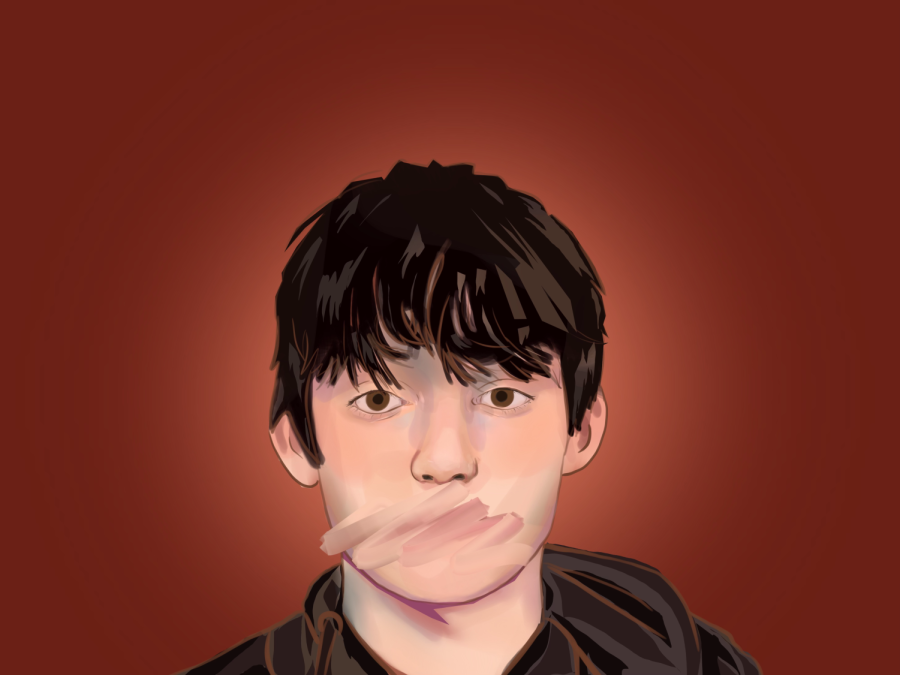Freshman lives without a voice
A portrait of freshman Austin Aguinaldo.
March 3, 2023
Austin Aguinaldo can’t speak.
The Naperville Central freshman was sitting in third hour on Aug. 30 when he realized his issue. He texted his mom that he felt sick, and left school during fourth hour. Aguinaldo then bounced from the emergency room to different doctors over the span of five months until he was diagnosed with a brain stem issue affecting his vocal chords, eye convergence and balance.
A portion of Aguinaldo’s middle brain stem was deemed overactive or dysfunctional as a result of a viral infection, an extremely rare diagnosis.
“First I went to Edward [Hospital] but they didn’t have a child neurologist, so they put me under an MRI or CT scan and it was clean,” Aguinaldo explained through typed responses to interview questions. “They sent me to Lurie [Children’s Hospital], and they provided [a diagnosis of] functional neurological disorder. I then went to University of Chicago, and they said functional neurological disorder. I got a MRI or CT and a lot of blood work. I then went to a specialized neurologist and he ran a lot more thorough tests and determined that it was more of a brain/neurological problem.”
In order to talk, vocal chords are supposed to open and close, which currently isn’t possible for Aguinaldo.
“I have incredible tightness around my jaw and neck and if I try for too long it eventually becomes painful,” Aguinaldo said. “My vocal chords can open but when I try to speak it becomes very tense and tight.”
The portion of his brain stem that was deemed responsible for the issue also controls balance and eye convergence.
“My balance is off and I lean forward, especially when my eyes are closed,” Aguinaldo said. “This is consistent with eye convergence problems in the same region where the talking problem originates.”
According to the American Speech-Language-Hearing Association, selective mutism affects between 0.47% and 0.76% of the population. Mutism caused by a medical condition is far less common.
Aguinaldo is a member of Central’s wrestling team and hasn’t seen any effects from his balance problems present in his wrestling.
“It’s just boring not talking,” Aguinaldo said. “I used to be an avid talker so it’s been quite the flip, It’s made me pay attention in class a lot because I can no longer talk to friends.”
Freshman Stefan Ilic has been friends with Aguinaldo since fifth grade and has remained friends with him throughout his voice issues.
“He showed on his Snapchat story that he was in the hospital,” Ilic said. “I asked him and he said, something with his voice was happening. And then he came back to school a week later, and he couldn’t talk.”
Aguinaldo uses various apps and strategies to communicate during class. He has a Google Doc that he can show to teachers with messages, as well as the Notes app on his iPhone to show peers.
“We still have the same interactions but he just types into his phone instead,” Ilic said. “A couple of times when we’ve been in a one-on-one setting it’s been kind of weird, but in a group setting it’s pretty much the same.”
Aguinaldo doesn’t currently have a 504 plan as a result of his condition, but he may have a meeting to implement learning accommodations in the future, he said.
“For classes, I just do written versions of assignments which isn’t that hard for me as I can write a lot,” Aguinaldo said. “But for friendships, I mainly just type out stuff which is tedious, but better than not communicating at all.”
Aguinaldo is now working with Dr. Matthew Imber of Interactive Neurology in Naperville for two hours a week to hopefully correct his brain stem.
“What this therapy is trying to achieve is the stimulating and exercise of these regions in order to fix them,” Aguinaldo said.
With the therapy Aguinaldo has been through, his doctor is hopeful that he will be able to speak again by summer, Aguinaldo said.









